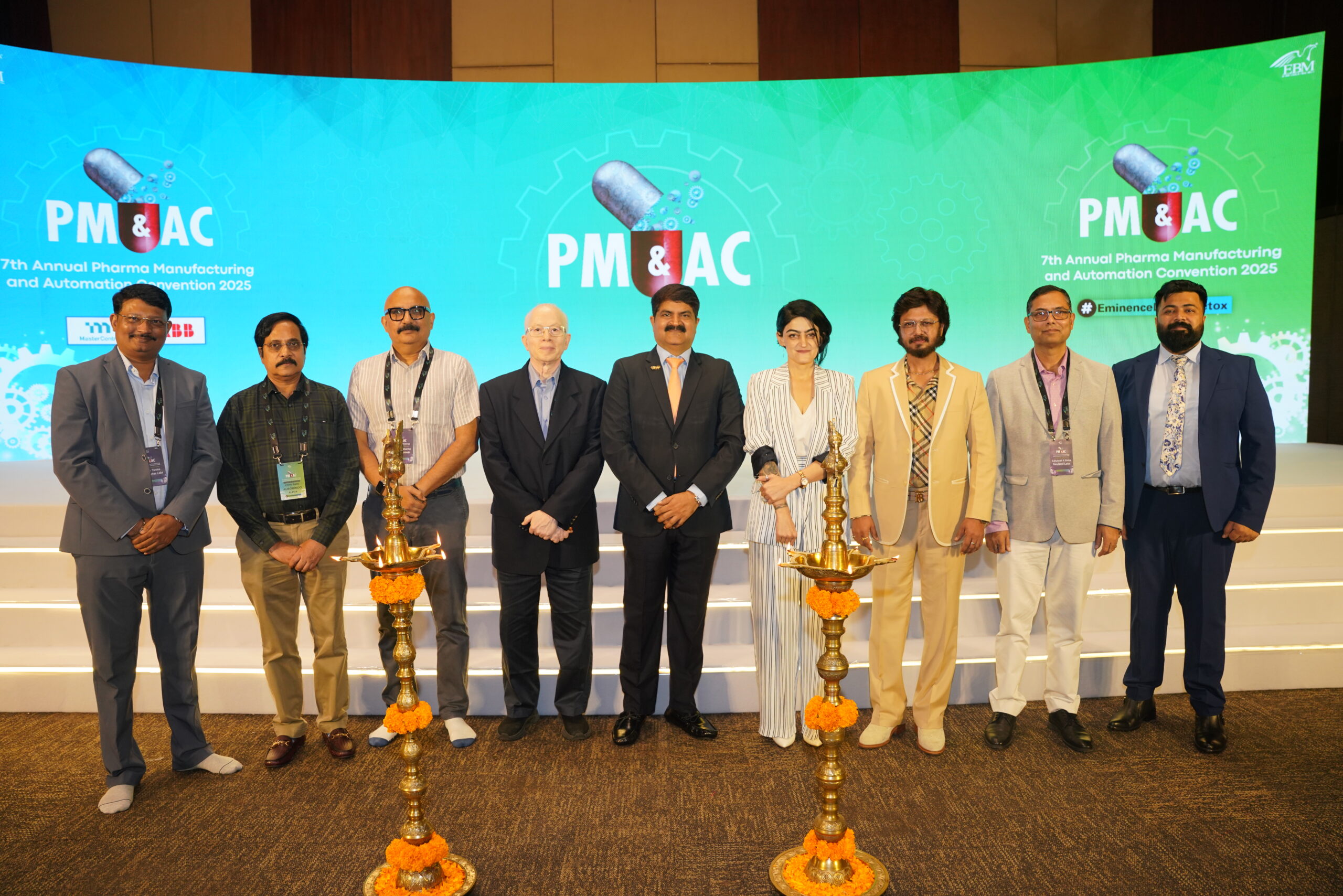
Mr. Amit Malviya – Vice President Quality Assurance – Zest Pharma Ltd
The pharmaceutical sector has played a significant role in contemporary healthcare for many years, providing the drugs and treatments that are required to extend and improve people’s lives. Due to technological advancements, “pharma tech” is currently changing how medical science, medication formulation, and patient care are conducted. Pharmaceutical innovations are changing the game and making people’s lives better these days.
Numerous facets of the healthcare sector are undergoing radical change as a result of pharmaceutical technology breakthroughs, including methods for treatment, delivery, and results. Some of the technologies that are transforming the pharmaceutical sector include wearable devices, 3D printing, gene editing, blockchain, robotics, precision medicine, and artificial intelligence (AI) in drug discovery. All of these advancements address specific issues in the healthcare industry, such as supply chain risks, patient treatment outcomes, and the development of medications.
Therefore, we will be able to provide improved patient care, disease control, and efficient management of healthcare facilities as pharmaceutical technology advances daily. They highlight a future in which, in addition to being more effective, treatment will be more patient-centered and individualized, improving people’s health.
Significant improvements in drug delivery techniques are also causing a radical change in the pharmaceutical sector.
The way medications are administered is being completely transformed by these cutting-edge technologies, which also improve patient compliance, safety, and efficacy. These innovations have the potential to significantly alter the therapeutic landscape and enhance patient outcomes by resolving a number of issues related to conventional medication delivery techniques.
Since nanotechnology enables precise targeting and controlled release of medicinal substances, it has revolutionized medicine delivery. Effective medication distribution to certain tissues or cells is made possible by nanoparticles, liposomes, and nanoscale polymer systems, which increase therapeutic efficacy while reducing side effects. Personalized therapy based on patient profiles, targeted drug delivery to tumors, and overcoming the blood-brain barrier are just a few of the nanotechnology-based tactics being investigated by researchers.
The pharmaceutical sector is changing as a result of the quick developments in personalized medicine, which are putting more emphasis on customized therapies than on one-size-fits-all approaches. Pharmaceutical companies are creating safer and more effective drugs by integrating digital health technology, AI, ML, TDM, genomics, and companion diagnostics. A new era of precision healthcare, lower healthcare costs, and better patient outcomes are all possible with personalized medicine. The future of pharmaceuticals could be completely transformed by personalized medicine as long as research and technological advancements continue.
An encouraging option for the long-term management of chronic illnesses is the use of implantable drug delivery devices. By releasing drugs gradually over a longer period of time, these devices improve patient compliance and do away with the necessity for regular dosage. Diabetes, chronic pain, and hormonal imbalances can all be treated with implanted devices, which offer a steady and regulated flow of medication while minimizing drug level variations.
Targeting particular genetic abnormalities has drawn a lot of attention to gene therapy and RNA-based treatments. Highly focused medication delivery systems have been made possible by recent developments in these areas. It may be possible to treat diseases that were previously incurable at the genetic level by safely and effectively delivering therapeutic genes or RNA molecules into the patient’s cells using viral vectors and non-viral delivery techniques.
Pharmaceuticals are currently a part of additive manufacturing, also referred to as 3D printing. The development of customized, patient-specific drugs with intricate drug release patterns is made possible by this technology. By combining several treatments or dosages into a single tablet, 3D-printed medications can be customized to meet the needs of each patient. This strategy has the potential to improve patient outcomes, increase medication adherence, and transform the drug manufacturing industry.
In order to provide exact and individualized medicine administration, smart drug delivery systems integrate sensor technologies, data analytics, and connectivity. These devices can send real-time data to healthcare providers, monitor patient response, and modify dosages. Smart drug delivery systems increase therapeutic efficacy while reducing side effects by allowing real-time tracking of drug levels in the body and adjusting treatment plans accordingly. The pharmaceutical industry is entering a new era of targeted and personalized medicine because to developments in drug delivery technologies.
Diagnostic tests known as companion diagnostics are used to determine which patients are most likely to benefit from a given medicine or treatment. In order to assess a patient’s appropriateness for a certain medication, these tests look at biomarkers or genetic markers. Companion diagnostics increase patient selection and treatment outcomes by providing focused therapy. In order to facilitate individualized treatment programs, pharmaceutical companies are working with diagnostic companies to produce companion diagnostics in tandem with new drug approvals.
The pharmaceutical industry is one of many that AI and ML are transforming. Large datasets are being analyzed using these technologies to find trends and derive insightful information. AI and machine learning algorithms are employed in personalized medicine to evaluate complicated patient data, such as genetic information, electronic health records, and data from real-time monitoring. This aids in the prediction of disease outcomes, the identification of individualized treatment choices, and the optimization of medication dosages according to individual features.
Therapeutic medication monitoring, which helps to ensure the proper dosage and prevent toxicity, includes measuring a patient’s blood drug levels. TDM is a tool used in personalized medicine to adjust medication dosages for specific patients based on genetic differences, drug interactions, and metabolism. In order to create safer and more effective drugs, pharmaceutical companies are spending money on research and development to integrate TDM methods into drug formulations and treatment protocols.
A major focus of personalized medicine is patient empowerment and engagement. Wearable technology, smartphone applications, and telemedicine are examples of digital health technologies that allow for real-time feedback, distant consultations, and ongoing monitoring. These tools make it easier to gather health data created by patients, which advances our knowledge of their unique health profiles. Digital health platforms are being used by pharmaceutical companies to collect patient data, carry out clinical trials, and improve individualized treatment plans.






